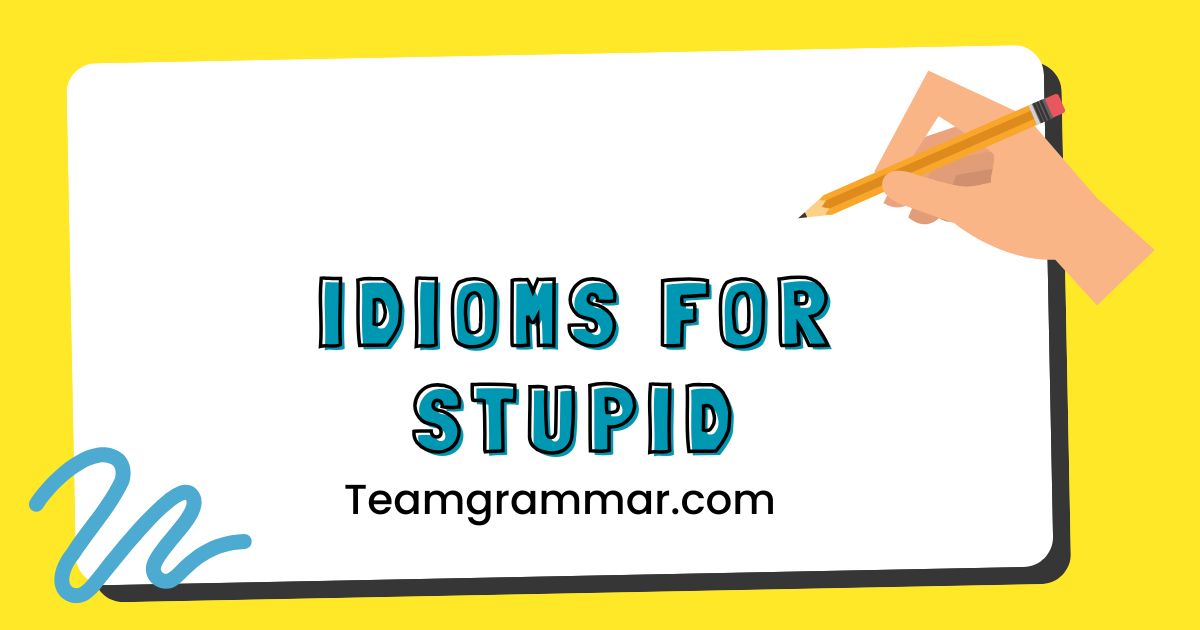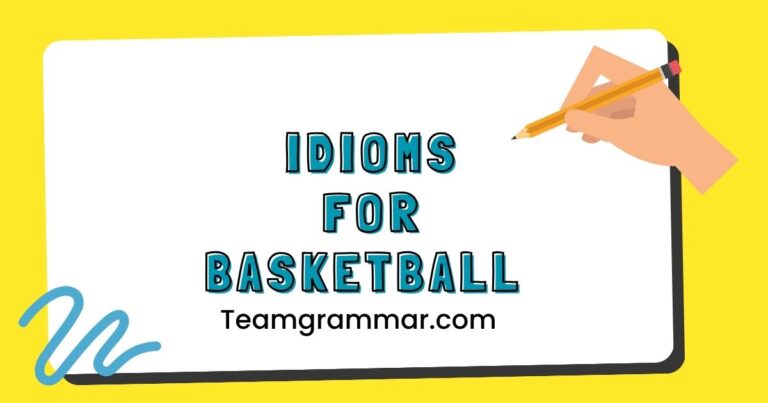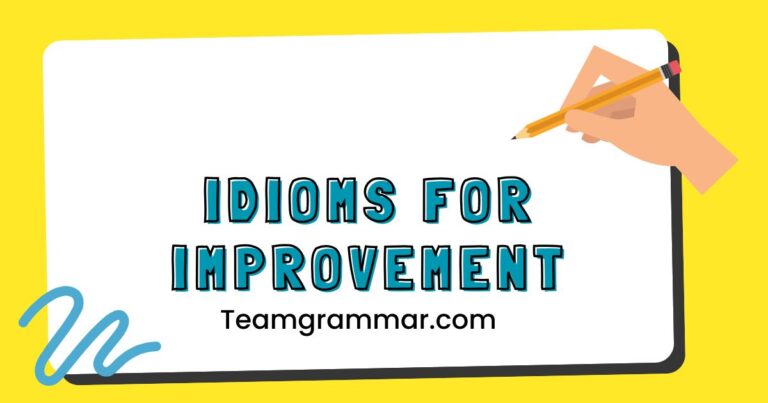43 Idioms for “Stupid”: A Comprehensive Guide to Colorful Language
English idioms offer a rich tapestry of expressions that go beyond literal meanings, adding color and nuance to our communication. When describing someone lacking in intelligence or making foolish decisions, a plethora of idioms can be employed.
Understanding these idioms is crucial not only for comprehending everyday conversations and literature but also for effectively expressing oneself with greater precision and flair. This guide explores a wide range of idioms used to describe stupidity, providing definitions, examples, and usage tips, benefiting English language learners, writers, and anyone seeking to expand their idiomatic vocabulary.
Table of Contents
- Introduction
- Definition of Idioms for “Stupid”
- Structural Breakdown of Idioms
- Types and Categories of Idioms for “Stupid”
- Examples of Idioms for “Stupid”
- Usage Rules for Idioms
- Common Mistakes with Idioms
- Practice Exercises
- Advanced Topics in Idiomatic Usage
- Frequently Asked Questions
- Conclusion
Definition of Idioms for “Stupid”
An idiom is a phrase or expression whose meaning cannot be understood from the ordinary meanings of the words in it. It’s a unique characteristic of language that adds depth and color to communication.
Idioms used to describe someone as “stupid” or lacking intelligence are metaphorical expressions that imply a deficiency in cognitive ability, common sense, or sound judgment. These idioms serve as alternatives to directly calling someone “stupid,” often adding a layer of humor, sarcasm, or mild criticism.
They function as a shorthand way to convey a complex idea about someone’s intellect or behavior in a concise and memorable manner. The context in which an idiom is used is crucial for understanding its intended meaning and impact.
The classification of these idioms can be based on their origin, imagery, or the specific nuance they convey. For instance, some idioms might draw on animal stereotypes (e.g., “dumb as an ox”), while others may use food metaphors (e.g., “not the sharpest tool in the shed”).
The function of these idioms extends beyond simple description; they can also be used to express surprise, disbelief, or frustration. Understanding the cultural context is also essential, as some idioms may be specific to certain regions or dialects.
Structural Breakdown of Idioms
Idioms, by their nature, defy standard grammatical analysis. Their meaning is not derived from the individual words but from the phrase as a whole.
However, we can analyze their structure to understand how they function within a sentence. Many idioms consist of a fixed phrase, meaning the words cannot be changed or reordered without altering or destroying the idiom’s meaning.
For example, you can’t say “as an ox dumb” and retain the meaning of “dumb as an ox.”
The grammatical structure of idioms can vary. Some are simple prepositional phrases (e.g., “out to lunch”), while others are clauses or even complete sentences (e.g., “the lights are on but nobody’s home”).
Understanding the grammatical structure helps in integrating the idiom correctly into a sentence. However, the focus should always be on the idiomatic meaning rather than the literal grammatical interpretation.
Furthermore, some idioms might contain archaic words or grammatical structures that are no longer in common use, adding to their distinctive character.
Types and Categories of Idioms for “Stupid”
Idioms for describing stupidity can be categorized based on the imagery or concepts they employ. Here are some common categories:
Animal-Related Idioms
These idioms draw on perceived characteristics of animals to suggest a lack of intelligence. Animals often used in these idioms include donkeys, oxen, and birds.
Food-Related Idioms
These idioms use food as a metaphor for brains or intelligence, often implying that someone is lacking in these qualities. Examples include references to cheese, noodles, or being “half-baked.”
Object-Related Idioms
These idioms use objects, often tools, to suggest that someone is not very bright or effective. The implication is that the person is not sharp, well-functioning, or complete.
Body-Part Related Idioms
These idioms connect stupidity to specific body parts, particularly the head, brain, or other related organs. They imply that the person’s thinking abilities are somehow deficient or malfunctioning.
General Idioms
This category includes idioms that don’t fit neatly into the other categories but are commonly used to describe someone as stupid or foolish. These idioms often rely on abstract concepts or situations to convey the intended meaning.
Examples of Idioms for “Stupid”
Below are examples of idioms for “stupid,” categorized for clarity.
Animal Idioms Examples
These idioms use animal metaphors to imply a lack of intelligence. The following table provides a variety of examples, showcasing different animals and their associated connotations of stupidity.
| Idiom | Meaning | Example Sentence |
|---|---|---|
| Dumb as an ox | Very stupid; lacking intelligence. | He kept making the same mistake, as dumb as an ox. |
| Bird-brained | Silly; lacking serious thought or intelligence. | She made a bird-brained decision to quit her job without having another one lined up. |
| Like a deer in headlights | Appearing confused and unable to react in a stressful situation. | When the boss asked him about the missing report, he just stood there like a deer in headlights. |
| Silly goose | A playful way to call someone silly or foolish. | “You locked your keys in the car again? You silly goose!” |
| Mad as a hatter | Completely insane or eccentric. | After spending years in isolation, he became as mad as a hatter. |
| Crazy like a fox | Appearing foolish but actually very cunning. | He acted crazy like a fox to deceive his opponents. |
| Dumb bunny | A foolish or unintelligent person. | He’s such a dumb bunny; he always falls for the same tricks. |
| Eager beaver | Someone who is extremely enthusiastic and hardworking, sometimes to an excessive degree (can imply naivety). | As an eager beaver, she volunteered for every task, often without considering the workload. |
| Happy as a clam | Very happy and content, often oblivious to potential problems. | He was happy as a clam, completely unaware of the financial troubles looming over the company. |
| Wild goose chase | A pointless or fruitless search. | Looking for that document is a wild goose chase; it doesn’t exist. |
| Chicken-brained | Stupid; lacking intelligence (similar to bird-brained). | Only a chicken-brained person would try to argue with the data. |
| Pig-headed | Stubborn and foolish; refusing to listen to reason. | He’s too pig-headed to admit he made a mistake. |
| Donkey’s years | A very long time (implying the person is old and foolish). | I haven’t seen him in donkey’s years. |
| Dumb as a post | Extremely stupid; lacking any intelligence. | He’s as dumb as a post; I can’t believe he passed the exam. |
| Like a fish out of water | Feeling uncomfortable or out of place in a particular situation. | He felt like a fish out of water at the fancy gala. |
| Blind as a bat | Having very poor eyesight (can be used metaphorically for lacking understanding). | He’s blind as a bat when it comes to understanding people’s emotions. |
| Sly as a fox | Cunning and deceitful. | He’s sly as a fox, always scheming to get ahead. |
| Timid as a mouse | Shy and easily frightened. | She’s as timid as a mouse and afraid to speak her mind. |
| Busy as a bee | Very busy and active. | She’s been as busy as a bee preparing for the conference. |
| Stubborn as a mule | Very stubborn and unwilling to change one’s mind. | He’s as stubborn as a mule and refuses to compromise. |
| Barking up the wrong tree | Pursuing a mistaken or misguided course of action. | If you think he’s the culprit, you’re barking up the wrong tree. |
Food Idioms Examples
Food-related idioms often use culinary terms to describe someone’s intelligence or lack thereof. The following table illustrates how various food items are used metaphorically to convey stupidity or foolishness.
| Idiom | Meaning | Example Sentence |
|---|---|---|
| Not the sharpest cheese in the fridge | Not very intelligent; lacking common sense. | He’s a nice guy, but he’s not exactly the sharpest cheese in the fridge. |
| Half-baked | Incompletely thought out; foolish or impractical. | That’s a half-baked idea that will never work. |
| A few sandwiches short of a picnic | Not very intelligent; lacking common sense. | He’s a few sandwiches short of a picnic, if you ask me. |
| Not the brightest bulb in the box | Not very intelligent; lacking common sense. | He’s not the brightest bulb in the box, but he tries hard. |
| Two fries short of a Happy Meal | Not very intelligent; lacking common sense. | I think he’s two fries short of a Happy Meal. |
| Noodle-head | A stupid or silly person. | Don’t be such a noodle-head; think before you act. |
| Egghead | A highly intelligent person, often in an academic field (sometimes used sarcastically to imply impracticality). | The eggheads at the university came up with a complex solution to the problem. |
| Full of baloney | Talking nonsense; lying or exaggerating. | Don’t listen to him; he’s full of baloney. |
| Go bananas | To become very excited or crazy. | The crowd went bananas when the band came on stage. |
| Hard nut to crack | A difficult person to deal with or understand. | He’s a hard nut to crack, always keeping his feelings hidden. |
| Cheesy | Tacky, corny, or in poor taste. | That movie was so cheesy; I couldn’t even finish it. |
| Sour grapes | Disparaging something because you cannot have it. | He said he didn’t want the promotion, but it was just sour grapes. |
| Cream of the crop | The best of a group or category. | She’s the cream of the crop when it comes to young athletes. |
| Piece of cake | Very easy. | The exam was a piece of cake. |
| Spill the beans | To reveal a secret. | He accidentally spilled the beans about the surprise party. |
| Take something with a grain of salt | To not take something too seriously. | I take everything he says with a grain of salt. |
| Butter someone up | To flatter someone in order to get something. | He tried to butter up his boss to get a raise. |
| Eat humble pie | To admit one’s error and apologize. | After being proven wrong, he had to eat humble pie. |
| Have your cake and eat it too | To want to have everything both ways. | You can’t have your cake and eat it too; you have to make a choice. |
| In a nutshell | In summary; briefly. | In a nutshell, the project was a disaster. |
| Like two peas in a pod | Very similar or close. | They’re like two peas in a pod, always together. |
Object Idioms Examples
Object-related idioms often use tools or everyday items to suggest a lack of intelligence or effectiveness. The following table provides examples of how different objects are used metaphorically to describe someone as stupid or foolish.
| Idiom | Meaning | Example Sentence |
|---|---|---|
| Not the sharpest tool in the shed | Not very intelligent; lacking common sense. | He’s a good worker, but he’s not the sharpest tool in the shed. |
| A few bricks short of a load | Not very intelligent; lacking common sense. | I think he’s a few bricks short of a load. |
| The lights are on but nobody’s home | Appearing to be aware but actually not understanding. | He just stared blankly; it was like the lights were on but nobody’s home. |
| Lost his marbles | Become senile or crazy. | Ever since the accident, he’s been acting like he’s lost his marbles. |
| Out to lunch | Not paying attention; unaware of what’s happening. | He’s been out to lunch all day; I don’t think he’s heard a word I’ve said. |
| Doesn’t have all his buttons | Not very intelligent or mentally stable. | I don’t think he has all his buttons; he’s always saying strange things. |
| One sandwich short of a picnic | Not very intelligent; lacking common sense. | She acts like she’s one sandwich short of a picnic. |
| Not the brightest crayon in the box | Not very intelligent; lacking common sense. | He may be enthusiastic, but he’s not the brightest crayon in the box. |
| A cog in the machine | A small and unimportant part of a larger system. | He felt like just a cog in the machine at his corporate job. |
| Off his rocker | Crazy or eccentric. | He’s been off his rocker ever since he lost his job. |
| Bent out of shape | Upset or angry. | He got all bent out of shape when I criticized his work. |
| Clear as mud | Not clear at all; confusing. | His explanation was as clear as mud. |
| Drive someone up the wall | To annoy or irritate someone greatly. | His constant complaining is driving me up the wall. |
| Hit the nail on the head | To be exactly right. | You hit the nail on the head with your analysis. |
| Jump on the bandwagon | To join a popular trend or activity. | Everyone is jumping on the bandwagon of social media marketing. |
| Keep your eye on the ball | To stay focused on the task at hand. | You need to keep your eye on the ball if you want to succeed. |
| Let the cat out of the bag | To reveal a secret. | He accidentally let the cat out of the bag about the surprise party. |
| Miss the boat | To miss an opportunity. | If you don’t apply now, you’ll miss the boat. |
| On the same page | In agreement or understanding. | We need to make sure everyone is on the same page before we start. |
| Pull someone’s leg | To tease or joke with someone. | I was just pulling your leg; I didn’t mean it seriously. |
| Rock the boat | To cause trouble or disrupt the status quo. | He doesn’t want to rock the boat by questioning the decision. |
Body-Part Idioms Examples
Body-part idioms use parts of the body to imply stupidity or foolishness. Here are some common examples, showcasing how various body parts are used metaphorically to convey a lack of intelligence.
| Idiom | Meaning | Example Sentence |
|---|---|---|
| Use your head | Think carefully and intelligently. | Use your head and figure out a better solution. |
| Wooden-headed | Stupid; lacking intelligence. | He’s so wooden-headed that he can’t understand simple instructions. |
| Blockhead | A stupid person. | Don’t be such a blockhead; think before you act. |
| Airhead | A stupid or frivolous person, especially a young woman. | She’s such an airhead; she never pays attention. |
| Bonehead | A stupid person. | Only a bonehead would make such a mistake. |
| Have a screw loose | Slightly crazy or eccentric. | I think he has a screw loose; he’s always talking to himself. |
| Not playing with a full deck | Not very intelligent or mentally stable. | I don’t think he’s playing with a full deck; he’s acting strangely. |
| Out of your mind | Crazy or insane. | You must be out of your mind to think that’s a good idea. |
| Off your head | Crazy or intoxicated. | He was completely off his head after drinking all night. |
| Knucklehead | A stupid person. | Don’t be such a knucklehead; pay attention! |
| Dead from the neck up | Stupid or lacking intelligence. | He seems dead from the neck up; he never understands anything. |
| Thick-headed | Stupid or slow to understand. | He’s so thick-headed; it takes forever to explain things to him. |
| Hard-headed | Stubborn and unwilling to change one’s mind. | He’s too hard-headed to listen to reason. |
| Empty-headed | Stupid or lacking serious thought. | She seemed empty-headed, but she was actually very clever. |
| Lose your head | To become irrational or panicked. | Don’t lose your head; stay calm and think clearly. |
| Keep a cool head | To remain calm in a difficult situation. | It’s important to keep a cool head in an emergency. |
| Bury your head in the sand | To ignore or avoid a problem. | You can’t bury your head in the sand and pretend the problem doesn’t exist. |
| Have your head in the clouds | To be daydreaming or unrealistic. | She always has her head in the clouds; she’s not very practical. |
| Head over heels | Deeply in love. | They fell head over heels for each other. |
| Two heads are better than one | It’s better to have two people working on a problem than one. | Let’s work on this together; two heads are better than one. |
| Turn a blind eye | To ignore something that one knows is wrong. | The authorities turned a blind eye to the corruption. |
General Idioms Examples
General idioms for “stupid” encompass a range of expressions that don’t fit neatly into the animal, food, object, or body-part categories. These idioms often use abstract concepts or situations to convey a lack of intelligence or common sense.
The following table provides a variety of such idioms, showcasing the diverse ways in which English can express stupidity.
| Idiom | Meaning | Example Sentence |
|---|---|---|
| Not the smartest person in the world | Not very intelligent; lacking common sense. | He’s a nice guy, but he’s not the smartest person in the world. |
| Doesn’t know beans | To know nothing about something. | He doesn’t know beans about computers. |
| Slow on the uptake | Slow to understand or learn something. | He’s a bit slow on the uptake, so you need to explain things clearly. |
| Dense | Stupid or slow to understand. | He’s so dense; I can’t believe he doesn’t understand. |
| Dim | Not very intelligent. | He’s a bit dim, but he’s a hard worker. |
| Simple | Naive or easily fooled. | He’s too simple; he believes everything he hears. |
| Naive | Lacking experience and wisdom. | She’s very naive; she trusts everyone. |
| Gullible | Easily persuaded to believe something; credulous. | He’s so gullible; he falls for every scam. |
| Foolish | Lacking good sense or judgment. | It was foolish to invest all his money in that venture. |
| Idiotic | Extremely stupid. | That was an idiotic thing to do. |
| Moronic | Very stupid. | Only a moronic person would try that. |
| Brainless | Stupid or lacking intelligence. | That was a brainless decision. |
| Witless | Lacking intelligence or wit. | He’s a witless fool. |
| Mindless | Lacking thought or intelligence. | It was a mindless act of vandalism. |
| Empty-headed | Stupid or lacking serious thought. | She seemed empty-headed, but she was actually very clever. |
| Scatterbrained | Disorganized and forgetful. | She’s so scatterbrained; she always forgets where she puts her keys. |
| Absent-minded | Forgetful or preoccupied. | He’s very absent-minded; he often forgets appointments. |
| Clueless | Having no understanding or knowledge of something. | He’s completely clueless about politics. |
| Oblivious | Unaware of what’s happening around you. | He’s oblivious to the fact that everyone is laughing at him. |
| Out of touch | Not aware of current trends or events. | He’s out of touch with the younger generation. |
| Goofy | Silly or foolish. | He’s a goofy guy, always making jokes. |
Usage Rules for Idioms
Using idioms correctly requires understanding their specific meanings and contexts. Here are some key rules to follow:
- Know the meaning: Always be sure you understand the actual meaning of the idiom, which is often different from the literal interpretation of the words.
- Consider the context: Idioms are context-dependent. Use them in situations where they are appropriate and make sense.
- Use the correct form: Many idioms have a fixed form. Changing the words can alter or destroy the meaning.
- Be aware of formality: Some idioms are informal and should be avoided in formal writing or speech.
- Consider your audience: Ensure your audience will understand the idiom. Avoid using obscure or regional idioms with people who may not be familiar with them.
Furthermore, be mindful of the connotations of the idiom. Some idioms can be offensive or insensitive, so choose your words carefully.
It’s also important to note that idioms can have different meanings in different cultures or dialects, so be aware of potential misunderstandings.
Common Mistakes with Idioms
One of the most common mistakes is taking the literal meaning of the words in the idiom. For example, someone might misunderstand “the lights are on but nobody’s home” to mean the person is literally not at home, rather than implying a lack of intelligence.
Another common mistake is altering the words of the idiom, which can change or destroy its meaning. For instance, saying “not the sharpest knife in the drawer” instead of “not the sharpest tool in the shed” changes the idiom.
Another frequent error is using idioms in inappropriate contexts. Using an informal idiom in a formal setting can sound unprofessional or awkward.
Additionally, using idioms that are not widely known can confuse your audience. It’s also important to be aware of potential cultural differences in idiom usage.
An idiom that is common in one culture may be unfamiliar or have a different meaning in another.
Here are some examples of common mistakes and their corrections:
| Incorrect | Correct | Explanation |
|---|---|---|
| He is dumb like an ox. | He is dumb as an ox. | The correct idiom is “dumb as an ox,” not “dumb like an ox.” |
| She’s not the brightest light in the room. | She’s not the brightest bulb in the box. | The correct idiom is “brightest bulb in the box,” not “brightest light in the room.” |
| He has lost his marbles everywhere. | He has lost his marbles. | The idiom is “lost his marbles,” not “lost his marbles everywhere.” |
| She is a few sandwiches less than a picnic. | She is a few sandwiches short of a picnic. | The correct idiom is “a few sandwiches short of a picnic,” not “a few sandwiches less than a picnic.” |
| He is out for lunch. | He is out to lunch. | The correct idiom is “out to lunch,” not “out for lunch.” |
Practice Exercises
Test your understanding of idioms for “stupid” with these exercises.
Exercise 1: Fill in the Blanks
Fill in the blanks with the correct idiom from the list below.
(List: dumb as an ox, bird-brained, not the sharpest tool in the shed, the lights are on but nobody’s home, a few sandwiches short of a picnic)
| Question | Answer |
|---|---|
| 1. He keeps making the same mistakes; he’s really __________. | dumb as an ox |
| 2. She made a __________ decision to quit her job without another one lined up. | bird-brained |
| 3. He’s a nice guy, but he’s __________ . | not the sharpest tool in the shed |
| 4. He just stares blankly; it’s like __________ . | the lights are on but nobody’s home |
| 5. I think he’s __________ . | a few sandwiches short of a picnic |
Exercise 2: Multiple Choice
Choose the correct meaning of the idiom in the sentence.
| Question | Options | Answer |
|---|---|---|
| 1. He’s always off his rocker. What does “off his rocker” mean? | a) Very calm, b) Crazy or eccentric, c) Very intelligent | b) Crazy or eccentric |
| 2. She’s so clueless about current events. What does “clueless” mean? | a) Very informed, b) Lacking understanding, c) Very opinionated | b) Lacking understanding |
| 3. He’s a bit slow on the uptake. What does “slow on the uptake” mean? | a) Very quick to understand, b) Slow to understand, c) Always on time | b) Slow to understand |
| 4. She’s known to bury her head in the sand when problems arise. What does “bury her head in the sand” mean? | a) Confronting problems head-on, b) Ignoring problems, c) Seeking advice | b) Ignoring problems |
| 5. After making a series of blunders, he had to eat humble pie. What does “eat humble pie” mean? | a) Celebrate success, b) Admit one’s error, c) Blame others | b) Admit one’s error |
Exercise 3: Sentence Completion
Complete the following sentences using an appropriate idiom from the list below.
(List: wild goose chase, pig-headed, like a fish out of water, spill the beans, hit the nail on the head)
| Question | Answer |
|---|---|
| 1. Looking for that file is a __________, it was deleted months ago. | wild goose chase |
| 2. He’s too __________ to admit that he made a mistake. | pig-headed |
| 3. He felt __________ at the formal dinner party. | like a fish out of water |
| 4. She accidentally __________ about the surprise party. | spilled the beans |
| 5. You __________ with your analysis of the situation. | hit the nail on the head |
Advanced Topics in Idiomatic Usage
For advanced learners, exploring the nuances of idiomatic usage can significantly enhance language proficiency. This includes understanding the etymology of idioms, which can provide deeper insights into their meanings and cultural contexts.
For example, researching the origins of “mad as a hatter” reveals its historical connection to mercury poisoning among hat makers in the 18th and 19th centuries.
Another advanced topic is the use of idioms in literature and rhetoric. Authors often employ idioms to add depth, humor, or irony to their writing.
Understanding how idioms are used in different genres and styles can improve both reading comprehension and writing skills. Furthermore, idioms can be strategically used in persuasive speaking to connect with audiences and make arguments more memorable.
However, it’s crucial to use idioms judiciously, as overuse can make writing or speech sound cliché or unnatural.
Studying the variations of idioms across different dialects and languages is also an advanced topic. Many idioms have regional variations, and some idioms are unique to specific languages.
Comparing and contrasting idioms across languages can provide valuable insights into cultural differences and linguistic patterns. Additionally, exploring the translation challenges posed by idioms can enhance cross-cultural communication skills.
Frequently Asked Questions
Conclusion
Mastering idioms for “stupid” can significantly enhance your English communication skills, allowing you to express yourself with greater precision, humor, and nuance. By understanding the meanings, usage rules, and common mistakes associated with these idioms, you can avoid misunderstandings and communicate more effectively.
Whether you’re an English language learner, a writer, or simply someone who wants to enrich their vocabulary, this guide provides a comprehensive resource for exploring the colorful world of idiomatic expressions.







